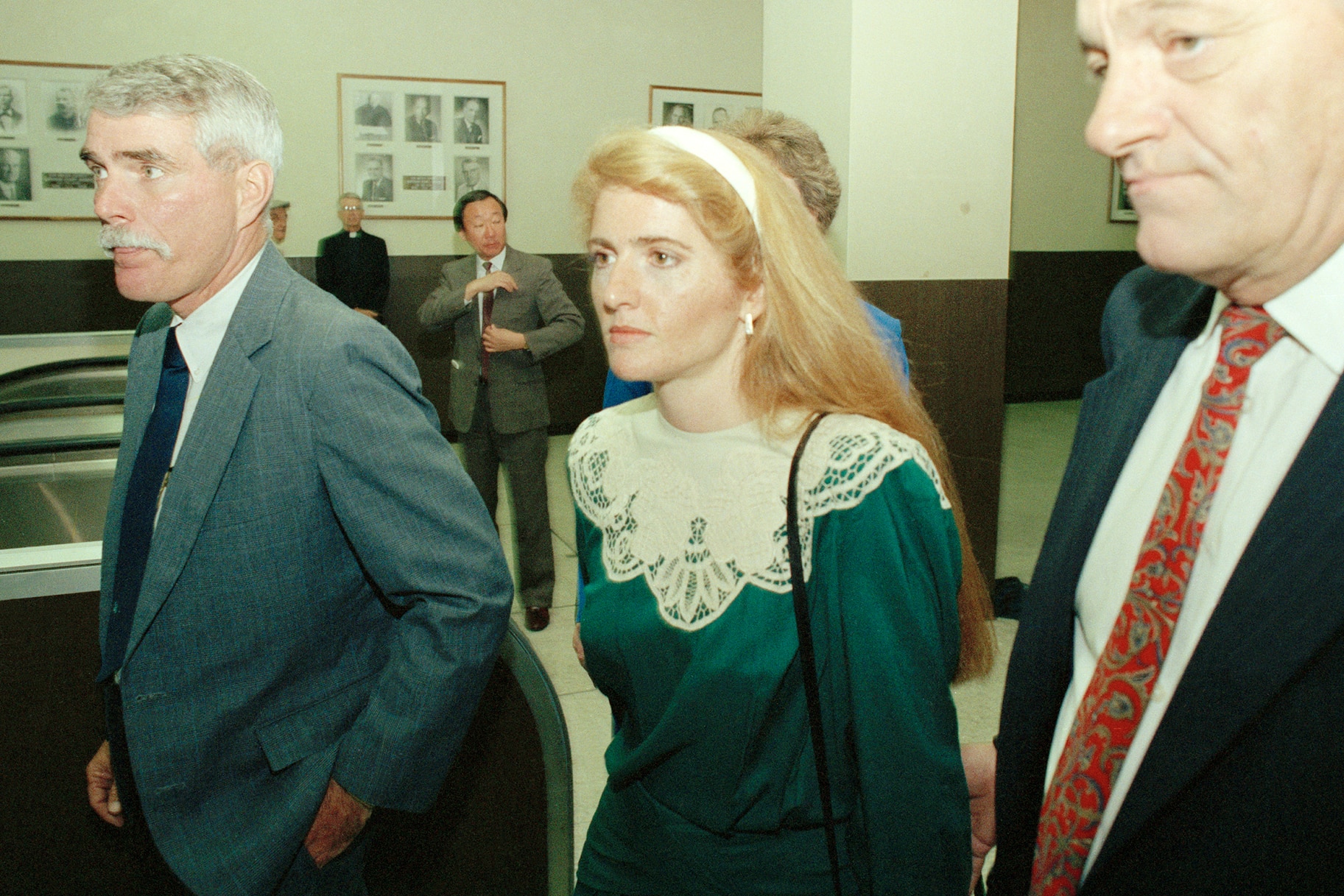Create a free profile to get unlimited access to exclusive videos, breaking news, sweepstakes, and more!
‘Memory Wars,’ What Is Repressed Memory And Is Testimony Like Eileen Franklin's Reliable In Court?
Eileen Franklin's so-called repressed memory was the prosecution's main source of evidence at her father's murder trial.

In 1990, Eileen Franklin testified that she had witnessed her mother kill her childhood friend, but had repressed the memory for decades. On this evidence, the jury convicted George Franklin of killing 8-year-old Susan Nason, in what became a landmark case.
The controversial phenomenon of repressed and recovered memory is at the center of the Eileen Franklin case, which is explored in the new Showtime docuseries “Buried.”
The California woman claimed in 1989 that she suddenly recovered horrific memories of her father George Thomas Franklin Sr. raping and murdering her 8-year-old best friend Susan Nason twenty years earlier. She initially claimed that the repressed memory was triggered by gazing at her own young daughter, who bore a resemblance to Nason. Later, it was revealed that she recovered it, at least in part, through hypnosis.
Repressed memory is a psychological concept that claims that if a memory is disturbing enough, it can remain dormant in someone's mind for years or even decades. Often, the memory involves sexual abuse, sometimes at the hand of a family member. Some believe that putting a person under hypnosis can help them explore the possibility that they have repressed some upsetting memories. However, many believe that hypnosis can cause possible false memories that may feel real but have no basis in reality.
Eileen reported her repressed memory to the authorities and in turn, her father was arrested and charged with first-degree murder for the 1969 killing of Nason. The case marked the first in which recovered memory was used in any criminal prosecution, the Los Angeles Times reported in 1995. George Franklin was found guilty of killing Nason in 1990 and sentenced to life behind bars.
His conviction, however, was overturned in 1995. Shortly after Eileen’s sister Janice accused Eileen of perjuring herself on the stand. She revealed that her sibling had been hypnotized, something she claimed under oath that she did not do. California’s Supreme Court ruled in 1982 that testimony based on hypnosis-induced memories are unreliable and not permissible in court. George Franklin was released from prison in 1996.
Still, the high profile case contributed to an influx of court cases based upon repressed memories. In 1989, legislative changes made it so that people in the state of Washington could sue for childhood sexual abuse they suffered at any time in their life within three years of the time they remembered the abuse. Within a few years, 18 other states enacted similar legislation regarding the statute of limitations.
In an academic battle that has since been dubbed “The Memory Wars", experts on both sides make strong cases for and against the validity of repressed memory. The Department of Justice seems to side against allowing it in court. They state that the use of hypnosis “ is subject to serious objections” and it “cannot be assumed to be accurate.”
Whether or not hypnosis-induced memories are admissible in court depends on the jurisdiction, the Department of Justice noted in 2020. They state that federal courts typically permit the use of such testimony by prosecution witnesses, as long as the hypnosis has no effect on the competence of their testimony.
"Great care must be exercised to insure [sic] that statements after hypnosis are the production of the subject's own recollection, rather than of recall tainted by suggestions received while under hypnosis," they wrote.
Ari Pines, one of the directors behind “Buried,” told Oxygen.com that there are significantly fewer cases based upon repressed memories now than in the 90s but noted that there are cases from time to time.
For one, repressed memory was used in the Jerry Sandusky sex scandal case. The retired college football coach was infamously exposed as serial sexual abuser who assaulted boys for decades; he was convicted in 2012 of 45 counts of sexual abuse. As his attorneys sought out another trial in 2017, psychology professor Elizabeth Loftus testified she believes that the former coach was convicted on junk science, PennLive reported at the time.
"There's no credible scientific support for this notion of massive repression ... of horrific brutalization being walled off into the subconscious," Loftus testified, adding that false stories can be implanted in healthy persons' minds "to the point where they remember things that never happened" in a very detailed manner.
A 2016 Psychology Today piece notes that courts have failed to find a consistent way in which to deal with repressed memories.
Pines told Oxygen.com that there is not a general rule that the memories are inadmissible but he noted that authorities are currently more cautious in introducing cases that are based only on repressed memories.
He also pointed out that the term "repressed memory" has become a "disgraced" way to describe the phenomenon.
"Nowadays, it’s typically called dissociative amnesia, which is basically the same thing, but dissociative amnesia is found in the DSM and it is more acknowledged," he said.
It's now characterized in the family of dissociative disorders which also include the very controversial dissociative identity disorder, formerly called multiple personality disorder.
"Experts who don’t believe in repressed memories also don’t believe in multiple personalities," Pines said. "In both cases they feel it’s the therapists that induce or suggest this condition onto their patients."
"Buried" co-director, Yotam Guendelman, told Oxygen.com that this controversy proves how little is known about the human brain and how difficult it is to determine the validity of memories.
"It's difficult to differentiate what is a real memory and what is not," he said. "We tend to believe that memories reflect what happened but research shows that it is flexible and we should be cautious about this."
"Buried" premieres on Showtime on Oct. 10.













